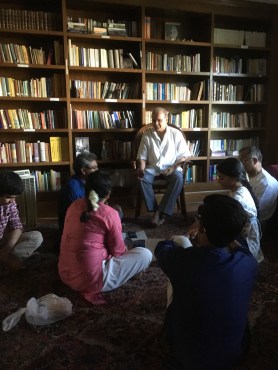Google’s recent announcement to start offering an integrated basket of its existing services (Gmail, Google Talk, Google Calendar, and Google Page Creator) for free is the next logical step in its strategy to challenge Microsoft in its traditional stronghold. With this move, Google is aiming to get small businesses, non profit organizations, and universities as clients.
Microsoft, in anticipation of this long awaited move, has started testing its Internet based service for small businesses called Office Live. Office Live Basics is being offered free by Microsoft and will continue to be free after the Beta period is over. However, Microsoft will start charging $29.95 a month for their premium services found in their “Office Live Collaboration” and “Office Live Essentials” services. These two are only free during the Beta period but not afterwards. Given the fact that Microsoft is entrenched in the desktop office space and its office products are already well integrated may give Microsoft more leverage to successfully offer premium Office Live services and charge for them.
Google needs to follow Microsoft’ s lead in offering its own premium services for a fee to add another dimension to its ad based revenue model. Google has indicated that it will indeed release a fee-based version of its service aimed at larger companies offering more data storage and technical support. Hey, but what about me Google? I am not a large company but I would like Google’s premium service and I would be willing to pay for it.
I have been wondering for a long time why Google does not offer premium services to its individual customers like Microsoft does. As soon as Google bought Blogger, they did away with the Blogger premium package and made it all free for everyone. Poof! No more premium Blogger. We don’t want your money loyal customers! What gives?
I have used the MSN paid premium service based on the MSN premium software which runs on top of my broadband service. It includes MSN mail and a number of other things for $9.95 a month. I am also a user of Google’s free services including Gmail, Picasa, Hello, Google Talk, Google Calendar, Blogger, Writely, …you name it and I have got it. I think Google free services are vastly superior to MSN paid premium services in every way. Gmail beats MSN mail in speed, functionality, and search any day of the week. Other than parental controls which come with the MSN premium software (which not everyone needs or wants), there is really nothing that MSN offers to justify charging $9.95 a month, except nice looking icons and colors.
Of course, Microsoft has known this for a long time which is why we have the introduction of Windows Live and a number of other initiatives being launched. As I have noted before, I am impressed with Microsoft’s recent moves. In particular, their desktop blogging application Windows Live Writer, squarely meets the demands of the blogging market and is in response to customers. So the way I see it, Microsoft is making amends and moving in the right direction. Maybe someday, I can say that my $9.95 a month for MSN premium are well spent. That day is not today. Basically by parting with my money monthly, I am investing in Microsoft’s future. I have my reasons for staying with MSN which I will go into some day. In part, I feel I have to use a product or a service before I can praise it or criticize it.
However, if I was paying $9.95 a month for an integrated package of Google services which included a well developed Writely that interfaced with the Google spreadsheet, a better Blogger, Google Page Creator with the ability to have my own domain name, extra storage for Gmail and all the other Google services, I would feel good. I would feel my money was well spent. So why is it that Google is not offering its premium services to loyal customers that want it? Why should Google’s premium service be only reserved for large enterprises? What would Google have to lose by having a two tiered structure of services like Microsoft does. Premium and Regular. They certainly would have a lot to gain. First, it is potentially another way to generate revenues independent of the ad based model. Second, having satisfied customers with increasing good will for Google is going to add to their future success.
My advice to Google. Start paying attention to your customers (Me!) and listen to what they want and need. Think outside the box.
 Last night something happened that disturbed my mind. Unable to sleep, I stayed awake until the wee hours, reading an illuminating book a friend had given me containing the reminiscences of those fortunate enough to have had personal contact with Bhagavan Ramana Maharshi.
Last night something happened that disturbed my mind. Unable to sleep, I stayed awake until the wee hours, reading an illuminating book a friend had given me containing the reminiscences of those fortunate enough to have had personal contact with Bhagavan Ramana Maharshi. As Gautama Buddha said so beautifully over two thousand years ago, sometimes the mind is like a drunken wild elephant in rut. Somehow we must…
As Gautama Buddha said so beautifully over two thousand years ago, sometimes the mind is like a drunken wild elephant in rut. Somehow we must…

